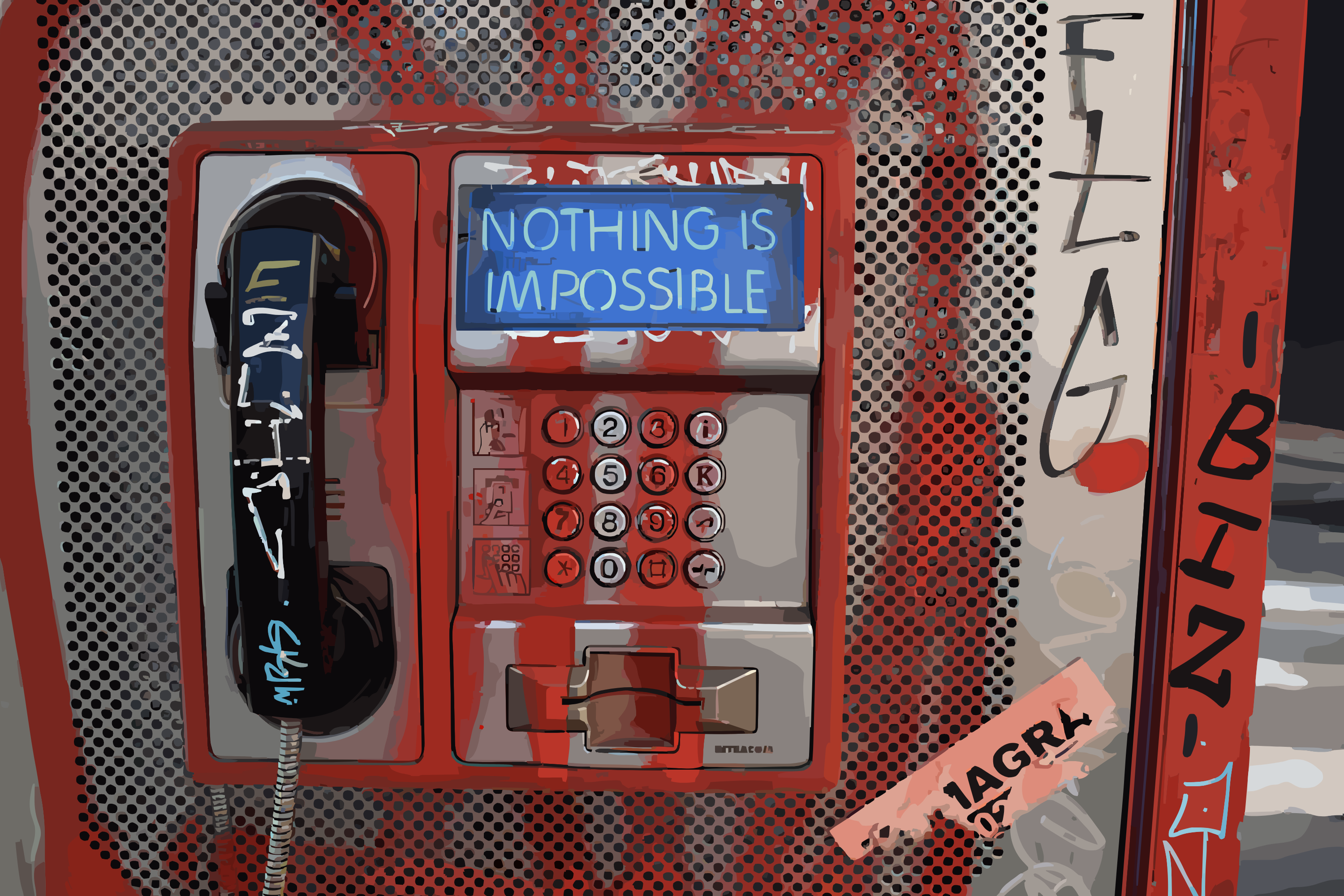Your partner doesn't know how to load the dishwasher properly, so you always end up doing it. Your coworker is terrible with technology, so you handle all the digital tasks. Your roommate can't figure out how to clean the bathroom, so guess who gets stuck with that job every week?
This is weaponized incompetence: where "I don't know how" becomes someone else's superpower and your personal hell.
This isn't about people who genuinely struggle with tasks or need help learning new skills. That’s completely different. This is about people who've figured out that playing dumb gets them out of responsibilities while making you feel like the capable, helpful hero for picking up their slack.
The psychology is brilliantly manipulative: they get to avoid work while you get to feel needed and competent. Win-win, right? Except you're doing double the work while they're getting rewarded for strategic helplessness.
You're not helping someone learn — you're enabling someone who's learned that incompetence is a weapon. And they're wielding it against your time, energy, and sanity.
Time to recognize the game and stop playing by their rules.
What Is Weaponized Incompetence?

Weaponized incompetence is the deliberate use of fake helplessness or exaggerated inability to avoid responsibilities and manipulate others into doing tasks for you. It's when someone strategically plays dumb to make their problems your problems.
This isn't someone genuinely struggling to learn how to fold fitted sheets (because let's be honest, that's legit witchcraft).
This is someone who's perfectly capable but has discovered that saying "I'm just not good at that" gets them out of doing things they don't want to do.
People using weaponized incompetence aren't actually incompetent…they're selectively incompetent. They can master complex video games, navigate social media algorithms, or remember every sports statistic from 1987, but somehow they can't figure out how to use the washing machine.
It's learned helplessness with an agenda. Instead of genuinely believing they can't do something, they've learned that pretending they can't is more effective than just saying they don't want to. "I don't know how" sounds so much better than "I don't want to" because it makes you the reasonable person who has to step in and help.
The manipulation is subtle but devastating: they get to avoid responsibility while positioning you as the capable one who's "just better at these things." You end up feeling guilty for not helping someone who seems so genuinely helpless.
The Psychology Behind Playing Dumb
Weaponized incompetence works because it hijacks your brain's natural helping instincts while giving the manipulator exactly what they want: less work and more control.
It ultimately turns avoidance into a reward system.
Every time someone plays dumb and you step in to help, you're accidentally training them that incompetence gets them out of work. They learn that feigned incompetence is better than any excuse because it makes you feel like the hero instead of the victim.
Your brain loves feeling competent and needed. When someone struggles with something you can easily do, helping them triggers a dopamine hit that makes you feel valuable and skilled. You're being the capable, generous person who saves the day. The manipulator gets their work done while you get an ego boost.
Everybody wins, right?
Wrong. You're being conditioned to enable their helplessness while they're being conditioned to avoid responsibility. It's like a twisted version of operant conditioning where learned helplessness becomes learned manipulation.
The most insidious part is how it reframes the power dynamic. Instead of "you're making me do your work," it becomes "I need your help because you're so much better at this." They've turned exploitation into flattery, and your brain falls for it every single time.
Remember, they’re not actually helpless: they're just really good at making helplessness work for them.
Common Examples of Weaponized Incompetence
Weaponized incompetence shows up everywhere, and it's not about gender roles or stereotypes. It's about people who've learned that playing dumb gets them out of work they don't want to do.
The pattern is always the same: selective competence that disappears exactly when responsibility appears.
Weaponized Incompetence in Your Relationship

- Your partner "doesn't know how" to work the washing machine, so you handle all the laundry because it's "easier" than teaching them for the fifth time
- They consistently "mess up" cooking dinner so badly that you stop asking them to help and just do it yourself
- Gift-giving becomes your responsibility because they're "terrible at picking presents" and always get the wrong thing
Weaponized Incompetence in Your Husband
- He "can't figure out" the kids' school schedules, parent-teacher conferences, or doctor appointments, so you become the default family manager
- Technology suddenly becomes impossible when it involves household management apps, grocery lists, or family calendars
- He's perfectly capable of complex work projects but "doesn't understand" how to coordinate childcare or meal planning
Weaponized Incompetence in Your Wife
- She's "not good with money" so all financial planning, bill paying, and budgeting becomes your job
- Car maintenance, home repairs, and anything involving tools is automatically "your thing" because she "doesn't know anything about that stuff"
- She's helpless with technology when it comes to setting up streaming services, managing passwords, or dealing with customer service calls
Weaponized Incompetence in the Workplace

- Coworkers who are "bad with computers" whenever it involves learning new software, updating systems, or troubleshooting basic problems
- Team members who consistently produce such poor-quality work that you end up redoing everything yourself
- Colleagues who "don't understand" project management tools, deadlines, or communication protocols, making you the unofficial coordinator
Other Common Examples
- Roommates who "can't figure out" cleaning schedules, utility bills, or basic household maintenance
- Friends who are mysteriously incompetent at planning events, making reservations, or handling any logistical responsibility
- Family members who suddenly lose all ability to use phones, computers, or basic adult skills whenever they need something done
How to Recognize Weaponized Incompetence vs. Genuine Struggle
Signs of weaponized incompetence are pretty obvious once you know what to look for. It just takes noticing the pattern of selective competence that magically disappears when certain tasks appear. Here are some red flags to look for:
- Selective expertise: They can master complex video games or professional skills but can't figure out basic household tasks.
- Strategic timing: Their incompetence only appears when you're around to help, never when they're alone and forced to figure it out.
- Resistance to learning: They don't want instructions, tutorials, or practice. They just want you to do it.
- Convenient memory loss: They "forget" how to do tasks they've done before, especially ones they dislike.
- Quality sabotage: They do such a deliberately poor job that you're forced to redo everything yourself.
- Emotional manipulation: They get frustrated, upset, or helpless whenever you try to teach them instead of just doing it yourself.
Genuine struggle looks different: people ask questions, practice independently, remember previous lessons, and show consistent improvement over time. They want to learn, not just avoid responsibility.
The difference is intention. Real incompetence seeks solutions. Weaponized incompetence seeks rescue.
How to Stop Weaponized Incompetence (Without Being a Jerk)

Stopping weaponized incompetence is all about refusing to enable strategic helplessness (while still maintaining your relationships and sanity). The goal is to break the cycle without becoming the villain in someone else's victim story.
You probably already know how that goes…
Here's how to shut it down:
- Stop rescuing immediately. When someone claims they can't do something, resist the urge to jump in and fix it. Let them sit with the natural consequences of their supposed incompetence.
- Offer teaching, not doing. "I can show you how to do this" instead of "I'll just do it myself." If they refuse the lesson, that tells you everything about their real motivation.
- Set clear expectations upfront. "This is your responsibility, and I won't be taking it over if you struggle with it." Remove the safety net before they even try to use it.
- Use strategic questions. "What part specifically are you having trouble with?" forces them to identify actual problems instead of vague helplessness.
- Document the pattern. Keep track of their "incompetence" to show them (and yourself) how selective it really is.
- Practice strategic unavailability. Don't always be around to rescue them. Amazing how competent people become when their backup plan disappears.
- Call out the behavior directly but calmly. "It seems like you're capable of complex tasks in other areas but struggle with this specific thing. What's different about this?"
- Stop accepting poor-quality work as genuine effort. "This doesn't meet the standard we agreed on. Please try again" instead of redoing it yourself.
- Remove yourself from their crisis. Their inability to plan or execute isn't your emergency to solve.
- Praise genuine effort, ignore fake struggle. Acknowledge real attempts to learn and improve, but don't give attention to theatrical helplessness.
Help You, Help Them
Enabling weaponized incompetence doesn't actually help anyone. You're not being kind by rescuing someone from responsibilities they're perfectly capable of handling — you're preventing them from growing while exhausting yourself in the process.
When you stop falling for strategic helplessness, you force people to develop actual competence instead of manipulation skills. That's better for everyone involved.
Stop being someone else's life manager. Set boundaries, stick to them, and watch how quickly "I can't" transforms into "I figured it out" when rescue isn't an option.
You're not responsible for other people's choices to avoid responsibility.
Subscribe to Hold That Thought for more ways to protect your sanity without losing your empathy.
.png)

.png)
